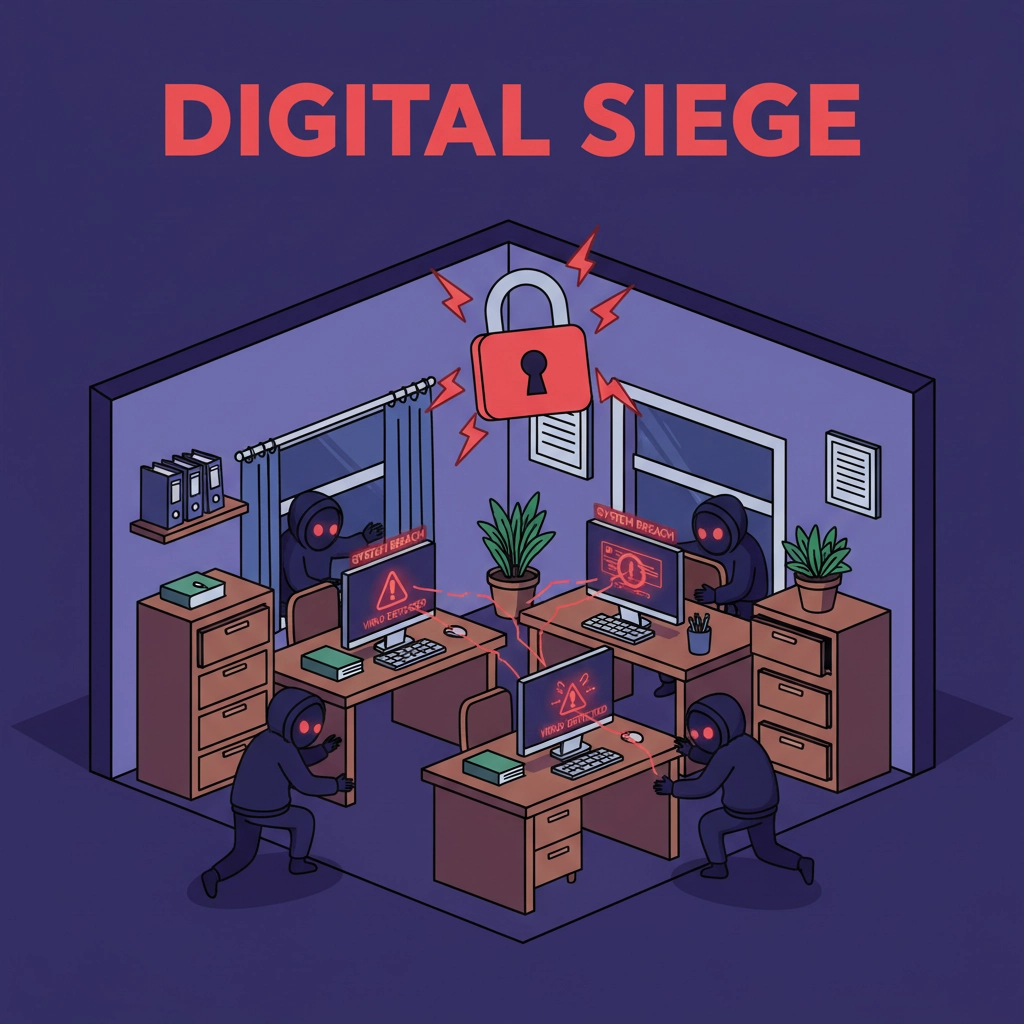Does Your Small Business Really Need Cyber Insurance?
The Answer is a Resounding, YES!
Cyber insurance isn't just a "nice-to-have" anymore. It has become as essential as general liability insurance for your business. Cybercriminals do not discriminate based on company size, and in fact, they're specifically targeting small businesses more than ever before.
Imagine the panic of arriving at your office to find all your files encrypted, your systems locked down, and a ransom demand for $10,000 to get your business back online. For many small business owners, this nightmare scenario is becoming an all-too-common reality. The question isn't whether you'll face a cyber threat: it's when.
Small Businesses Are in the Crosshairs
Here's what might surprise you: small businesses have become the #1 target for cyberattacks. Cybercriminals view smaller companies as low-hanging fruit because they typically have weaker security defenses compared to large enterprises, yet they still handle valuable data and money.
The misconception that your business is "too small to be noticed" is precisely what makes you vulnerable. Hackers use automated tools that scan thousands of companies simultaneously, looking for easy entry points. They don't care if you're a 5-person accounting firm or a 50-employee manufacturing company: if you're connected to the internet and have something of value, you're a target.

Since the pandemic fundamentally changed how we work, the threat landscape has become increasingly challenging for small businesses. Remote work, cloud adoption, and digital transformation have created new vulnerabilities that many business owners aren't even aware of. Yet despite this elevated risk, only 10-20% of small businesses currently have cyber insurance, leaving the vast majority dangerously exposed.
The Real Cost of Cyber Attacks
Let's talk numbers, because the financial reality of cyberattacks can be absolutely devastating for small businesses. Consider this real-world example: a small architecture firm was hit by ransomware through a compromised email attachment. The hackers encrypted all their project files and demanded $8,000 in Bitcoin to unlock them.
Without proper backups and facing tight client deadlines, the firm had no choice but to pay the ransom. However, their cyber liability insurance covered not just the ransom payment, but also the forensic investigation, client notification costs, and legal fees: expenses that would have totaled over $25,000 and potentially bankrupted the business.
The average cost of a data breach for small businesses now exceeds $2.9 million, according to recent studies. Even a minor incident involving customer data can result in:
- Legal fees and regulatory fines ranging from thousands to hundreds of thousands of dollars
- Business downtime costs that can reach into the thousands per hour for some industries
- Reputation damage that drives customers away permanently
- Data recovery and system restoration expenses can cripple cash flow
- Customer notification and credit monitoring requirements that add up quickly

What Cyber Insurance Actually Covers
Understanding what cyber insurance covers is crucial for making an informed decision. A comprehensive cyber liability policy typically protects multiple critical areas:
First-Party Coverage protects your own business assets and operations. This includes data restoration and recovery costs when your files are corrupted or encrypted, business income loss during downtime periods, and the cost of replacing or repairing damaged computer systems and equipment.
Third-Party Coverage protects you from claims made by others affected by a cyber incident involving your business. This covers legal defense costs when customers sue for data breaches, regulatory fines and penalties under laws like HIPAA or state privacy regulations, and liability for damages caused to other businesses through your network.
Specialized Services that most policies include can be invaluable during a crisis. These typically cover forensic investigation to determine how the breach occurred, specialized legal counsel for cyber incidents, public relations support to manage reputation damage, and credit monitoring services for affected customers.
The key is ensuring your policy covers both the immediate costs of responding to an incident and the long-term financial impacts on your business operations.
Regulatory Compliance Is Getting Stricter
The regulatory environment has become significantly more demanding, and failure to protect sensitive information can result in substantial fines. Laws such as CCPA in California, HIPAA for healthcare-related data, and GDPR for any business handling international customer information have created a complex compliance landscape.
Many small business owners don't realize that regulatory fines can be imposed even if you're the victim of a cyberattack. The law often requires businesses to implement "reasonable" security measures, and failing to do so can result in penalties regardless of whether you were targeted by criminals.

Your security awareness training and other cybersecurity measures demonstrate due diligence, but cyber insurance provides financial protection when compliance failures result in regulatory action. This makes it not just a risk management tool, but a business necessity for maintaining operations within legal requirements.
Who Needs Cyber Insurance Most?
While virtually all businesses can benefit from cyber insurance, certain types of companies face particularly high risks:
Data-Heavy Businesses that store customer information, financial records, or health data become prime targets. This includes medical practices, law firms, accounting firms, and any business that processes credit card payments or maintains customer databases.
Digital-Dependent Operations with websites, e-commerce stores, or extensive use of cloud-based tools face elevated vulnerability to phishing, ransomware, and denial-of-service attacks. If your business would struggle to operate without internet access or digital systems, cyber insurance is essential.
Professional Services like consultants, lawyers, and financial advisors handle sensitive client information and face strict regulatory requirements. A single data breach could not only result in financial losses but also professional licensing issues.
Manufacturing and Industrial Companies increasingly use connected devices, smart equipment, and proprietary digital systems that are attractive targets for hackers seeking to steal intellectual property or disrupt operations.
Making the Smart Business Decision
Cyber insurance serves as a crucial component of a comprehensive risk management approach. It acknowledges the reality that no matter how much you invest in cybersecurity defenses, it's impossible to bring your cyber risk down to zero.
Small businesses often lack the resources to fully invest in enterprise-level cybersecurity solutions, making insurance coverage even more critical as a financial safety net. By regularly assessing your cyber risks and ensuring proper insurance coverage, you create multiple layers of protection for your business.

The cost of cyber insurance is typically much less than business owners expect: often just a few thousand dollars per year for comprehensive coverage. When you consider that a single cyber incident could cost tens or hundreds of thousands of dollars, the investment provides tremendous value and peace of mind.
Your business continuity planning should include both proactive security measures and reactive insurance coverage. This comprehensive approach enables you to focus on your core business activities with confidence, knowing you're protected against digital threats.
Take Action Before It's Too Late
Cyber liability insurance represents one investment that's worth every penny. The combination of increasing cyber threats, stricter regulatory requirements, and the potentially catastrophic financial impact of cyber incidents makes this coverage essential rather than optional.
Don't wait until after an incident to wish you had been better prepared. Cybersecurity is an ongoing process, and insurance should be a cornerstone of your risk management strategy. Start by assessing your current vulnerabilities, understanding your coverage options, and working with professionals who can help you make informed decisions.
Ready to protect your business from cyber threats? Contact us today to discuss how comprehensive cybersecurity planning, including proper insurance coverage, can safeguard your company's future. Your business has worked too hard to build its reputation and success to leave it vulnerable to preventable cyber risks.












